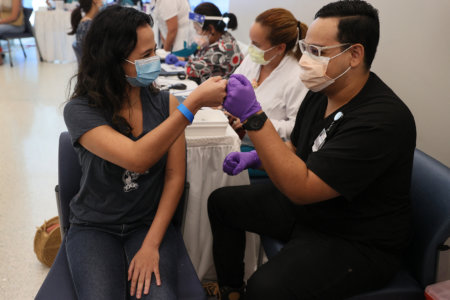
Are you currently attending, or are you about to start university? Then you’re probably aware that tuition fees do not come cheap.
Add on the cost of attending university, such as student accommodation, textbooks, resource fees, visa charges, and exam fees, and the number gets bigger.
Graduate student Banji Alo knows this all too well, and he shares on Twitter that by paying an exorbitant amount for university tuition fees, students should ensure that they are making those payments worthwhile.
Dear Prospective or Current International Student,
You are grossly under-utilising your tuition fees if all you do is to attend classes and wait for exams
Here’s how to get the most out of your tuition and #thread
— Banji Alo (@BanjiAlo) June 29, 2022
In other words, simply attending lectures and preparing for your exams isn’t enough to get the best bang for your buck.
So how do you fully utilise your university tuition fees? We’ve compiled Alo’s tips and scoured the web for some helpful tips:
How you can fully leverage your university tuition fees
1. Participate in workshops and training sessions
Most universities organise free workshops and training sessions throughout the academic year, such as writing workshops, photography classes, to public speaking training workshops.
Most of the time, any student is welcome to join these workshops and training sessions, and they serve as an excellent way to expand your skillsets.
The best part? You’ll usually get a certificate of completion or accreditation by the end of the session.
Most students, however, are usually unaware of such workshops and training sessions. A great way to be notified of the latest sessions is by following and subscribing to your university’s newsletter and follow them across social media platforms. You can also look for notices on your student website or on bulletin boards at your university library.

Students attend a practical session in a mechanical workshop at Anna university in Chennai. Source: Arun Sankar/AFP
2. Use your university’s free software licences
One of the best perks about being a student is having free access to software licences that you would otherwise have to pay to use.
Some premium software licences you can usually enjoy for free include Microsoft Office, Canva, Adobe Creative Cloud and Grammarly, to name a few.
Find out which software or subscription is available to you by visiting your student website or making an inquiry with student services.
3. Tap into your university’s career services and job fairs
Saw a notice about a job fair, or a TEDx Talk that’s happening soon? Have slots for a job training workshop opened up? Attend them!
Don’t worry if you’re just a freshman with a few more years to go before you graduate. You have nothing to lose by attending these events and workshops organised by your university’s career services.
Often, you may even walk away with some valuable insights, newfound interests or connections that can help you in the future.
Don’t forget to tap into your university’s free career consultations too. Many universities offer one-on-one career consultations to help students find their interests, build their CVs, gain career management skills and more.
4. Discover new hobbies and interests
One of the best things about studying at a university is that you have countless clubs and societies to explore, so don’t just set your eyes on one or two clubs.
Most clubs and societies have tryouts and orientation for first-year students to learn more about them, so go ahead and explore as many as you’d like.
Who knows — you may end up discovering a new talent or interest.

A third-year student studying model making for TV and film works in a workshop at the University of Bolton in Bolton, northwest England. Source: Oli Scarff/AFP
5. Build a network with your lecturers and professors
University is a place waiting for connections to happen — but it boils down to whether you’re willing to take the initiative!
By building connections with your lecturers and professors, you’ll be able to build a good reputation, ask for recommendation letters, explore research opportunities and more.
6. Enrol in free online courses
That’s right — many universities offer free online courses that students can explore, most of which allow you to learn at your own pace.
What’s cool is that some of these universities even allow non-students to enrol in their courses.
For instance, the University of Reading offers some 26 courses not just to its students but to the public tool. These courses range from archaeology to meteorology, psychology, food nutrition and more.










